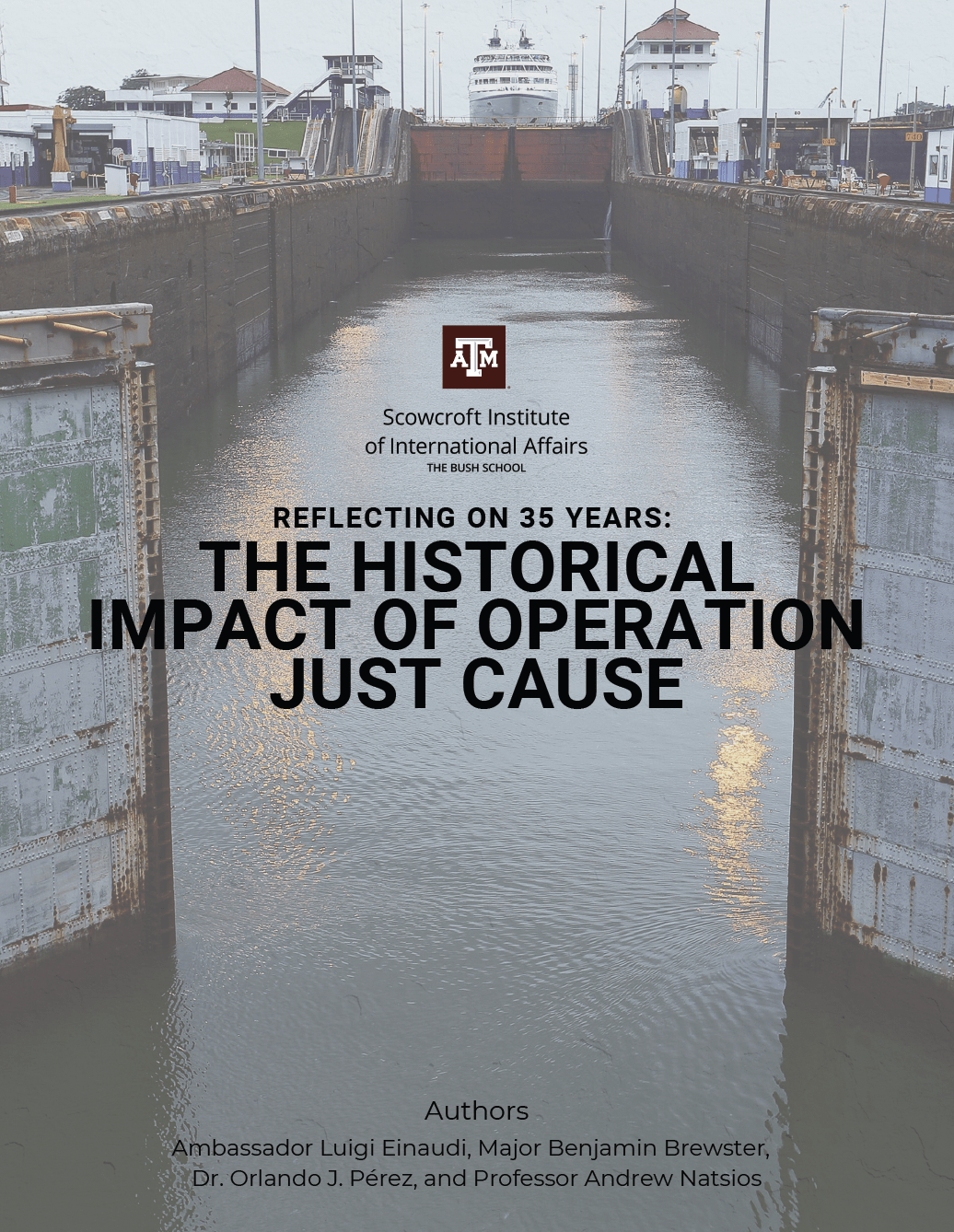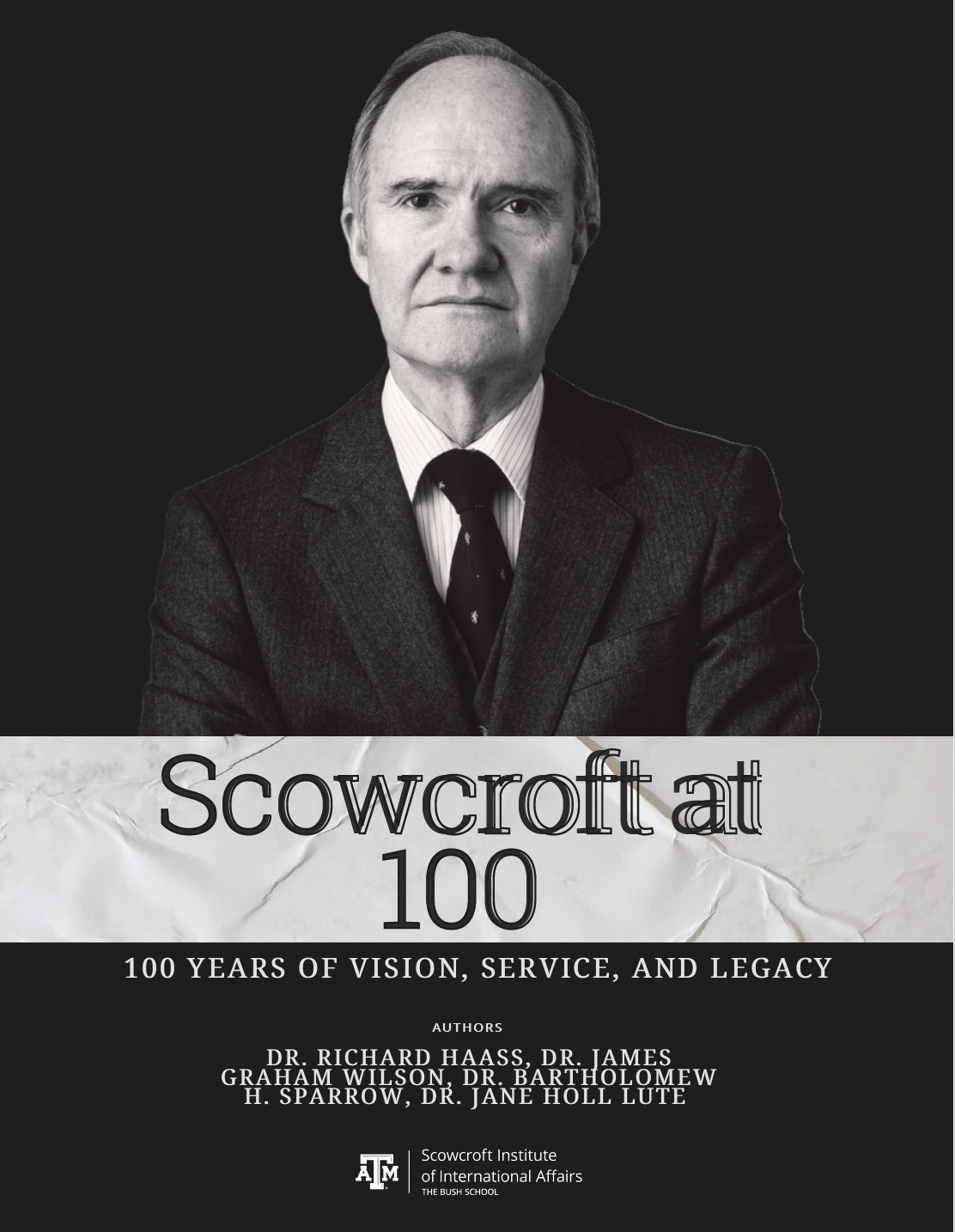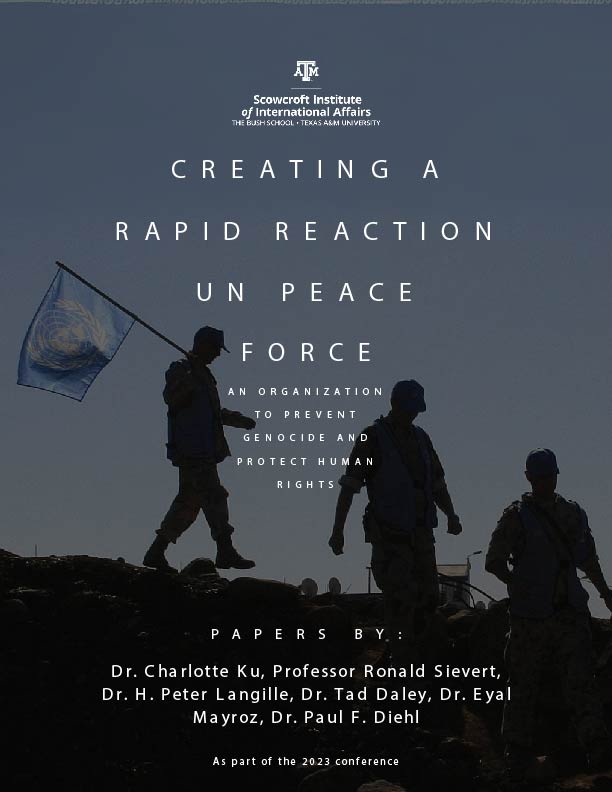The Historical Impact of Operation Just Cause
By Luigi Einaudi, Benjamin Brewster, Orlando J. Perez, Andrew Natsios
Scowcroft at 100
By Richard Haass, James Graham Wilson, Bartholomew H. Sparrow, Jane Holl Lute
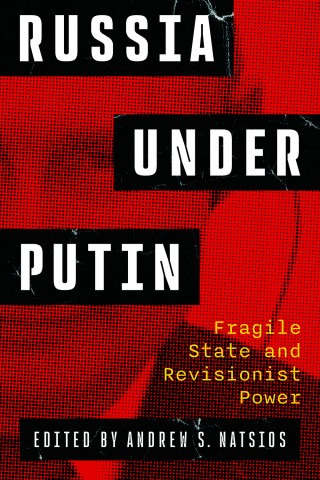
Russia Under Putin
By Anders Åslund, Alexandra Chinchilla, James S. Corum, Lynn Corum, Nicholas Eberstadt, Raymond C. Finch III, Paul Gregory, Scott Jasper, Todd Lefko, Andrew S. Natsios, Serhii Plokhy, Roger R. Reese, Raymond Robertson, Kathryn Stoner
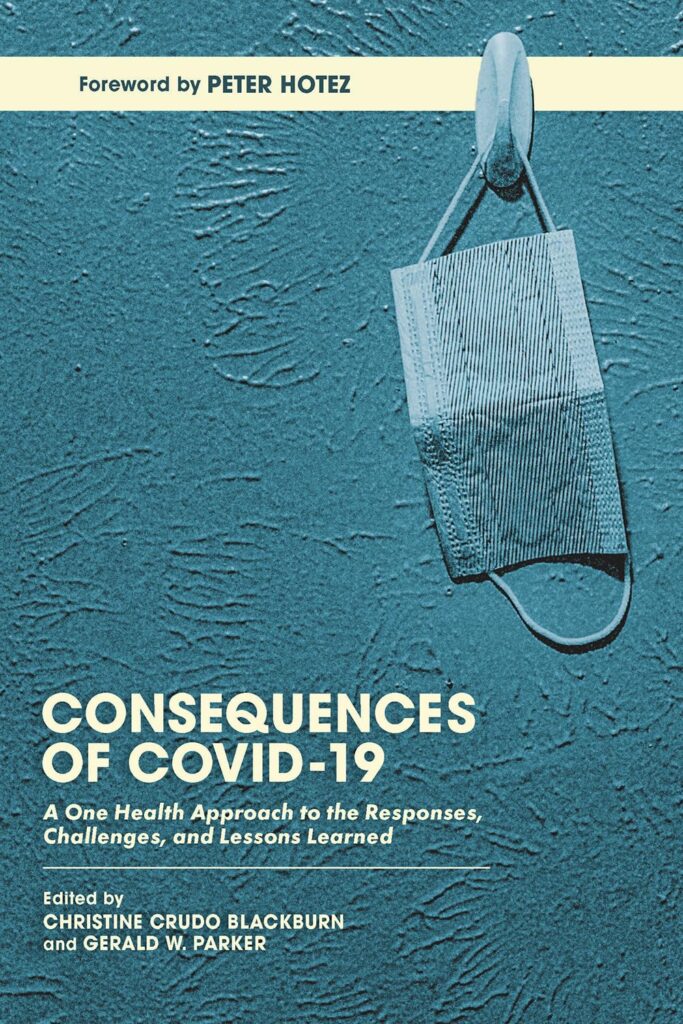
Consequences of Covid-19
By Christine Crudo Blackburn (Editor), Gerald W. Parker (Editor), Peter Hotez(Foreword), Damola Adesakin (Contributor), Sara Ali (Contributor), Ernesto Amaral Ph.D (Contributor), Natalie Baker (Contributor), Lillian Brannen (Contributor), Rachel Paige Casey (Contributor), Jordan Donop M.Ed (Contributor), Matthew Etchells(Contributor), Moe Fazail (Contributor), Richard Gelatt (Contributor), Eleftherios Iakovou (Contributor), Diara Malik (Contributor), Candace McAlester (Contributor), Erica Moorhead M.Ed (Contributor), Andrew S. Natsios (Contributor), Susan Ngunijri (Contributor), Erin Nguyen (Contributor), Huyen Pham (Contributor), Raymond Robertson (Contributor), Leslie E. Ruyle (Contributor), Lidia Azurdia Sierra(Contributor), Erin A. Singer (Contributor), Tamara Walderon M.Ed (Contributor), Soujin Wang Ph.D (Contributor), Vicki Weldon (Contributor), Liliana K. Wolf(Contributor)
Creating a Rapid Reaction UN Peace Force
by Dr. Charlotte Ku, Professor Ronald Sievert, Dr. H. Peter Langille, Dr. Tad Daley, Dr. Eyal Mayroz, Dr. Paul F. Diehl
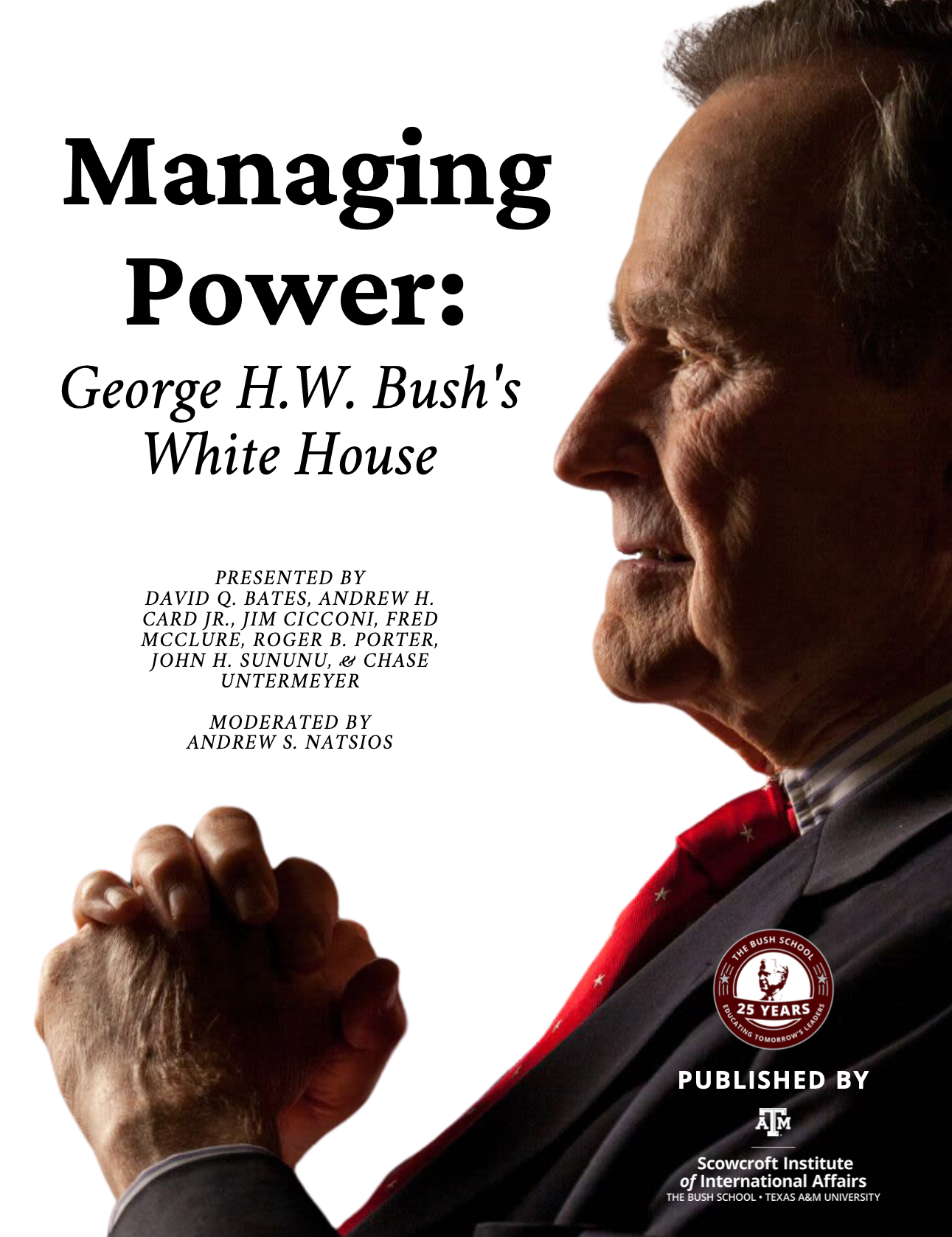
Managing Power: George H.W. Bush’s White House
by David Q. Bates, Andrew H. Card Jr., Jim Cicconi, Fred McClure, Roger B. Porter, John H. Sununu and Chase Untermeyer (Presenters), Andrew S. Nastios (Moderator)
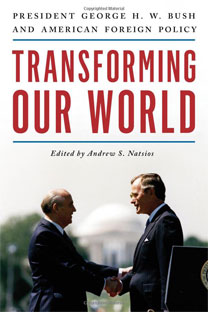
Transforming Our World: President George H. W. Bush and American Foreign Policy
by Andrew S. Natsios (Editor), Andrew H. Card Jr. (Editor)
From the fall of the Soviet Union to the Gulf War, the presidency of George H. W. Bush dealt with foreign policy challenges that would cement the post-Cold War order for a generation. This book brings together a distinguished collection of foreign policy practitioners – career and political – who participated in the unfolding of international events as part of the Bush administration to provide insider perspectives by the people charged with carrying them out. They shed new light on and analyze President Bush’s role in world events during this historic period, his style of diplomacy, the organization and functioning of his foreign policy team, the consequences of his decisions, and his leadership skills. At a time when the old American-led post-World War II order is eroding or even collapsing, this book reminds readers of the difference American leadership in the world can make and how a president can manage a highly successful foreign policy.
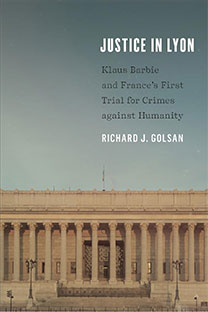
Justice in Lyon: Klaus Barbie and France’s First Trial for Crimes against Humanity
by Richard J. Golsan (Author)
The trial of former SS lieutenant and Gestapo chief Klaus Barbie was France’s first trial for crimes against humanity. Known as the “Butcher of Lyon” during the Nazi occupation of that city from 1942 to 1944, Barbie tortured, deported, and murdered thousands of Jews and Resistance fighters. Following a lengthy investigation and the overcoming of numerous legal and other obstacles, the trial began in 1987 and attracted global attention.
Justice in Lyon is the first comprehensive history of the Barbie trial, including the investigation leading up to it, the legal background to the case, and the hurdles the prosecution had to clear in order to bring Barbie to justice. Richard J. Golsan examines the strategies used by the defense, the prosecution, and the lawyers who represented Barbie’s many victims at the trial. The book draws from press coverage, articles, and books about Barbie and the trial published at the time, as well as recently released archival sources and the personal archives of lawyers at the trial.
Making the case that, despite the views of its many critics, the Barbie trial was a success in legal, historical, and pedagogical terms, Justice in Lyon details how the trial has had a positive impact on French and international law governing crimes against humanity.

Past Pandemics: Lessons from Past Epidemics and Pandemics
by Dr. Christine Crudo Blackburn (Author)
The COVID-19 pandemic of 2020 was the first major, truly global pandemic since the influenza pandemic of 1918 and, as such, drew numerous comparisons to the infamous pandemic a century earlier. These comparisons prompted people to speculate whether we had learned anything about pandemic response since 1918. The short answer is yes—we have made tremendous scientific advancements and worked with greatly improved communication and technology in response to COVID-19.
Incidentally, however, there were lessons we seemingly did not learn from the 1918 pandemic. Disagreement over things like face masks and social distancing in 2020 was reminiscent of reactions 100 years earlier. The Federalist system, which extends to the American public health system, also created similar patterns in the uniquely different paths taken by state responses and case numbers in different states. In 2020, as in 1918, some states opted for stricter measures than others, and some states experienced worse outbreaks than others—sometimes as a direct result of pandemic response policies and sometimes for entirely different reasons. Such similarities demonstrate that while we have come a long way, there is still progress to be made.
While the 1918 pandemic is remembered as the most destructive pandemic in modern human history, other notable epidemics and pandemics that have occurred over the last 100 years can offer insight as we look to future pandemics beyond COVID-19. This paper examines several critical epidemics and pandemics, including the 1918 flu, the 2003 SARS outbreak, the 2009 H1N1 pandemic, and the 2014 Ebola outbreak. In examining these events, the paper explores the in-country government responses, miscommunication, and misinformation, as well as focuses on the response within the United States. This paper also specifically examines the response by the State of Texas during each of these outbreaks. In some instances, there were no reported cases in Texas. By analyzing previous epidemics and pandemics, it is possible to expand our knowledge and better prepare the world, the country, and the State of Texas for the next pandemic.

Pandemic 20/20: The unfolding of scientific understanding of COVID-19: Denton Papers
by Christine Crudo Blackburn (Author), Denton Essays (Author)
When the COVID-19 pandemic shut down the world economy in March 2020 and many people found themselves isolated in their homes, there were no hints about how long the pandemic would last or how much sacrifice it would demand. What unfolded over the following years were massive successes, such as the swift development of a safe and effective vaccine and the largest mass vaccine distribution in history, and notable response side effects such as learning loss for students, increases in food insecurity, and an exacerbation of the mental health crisis in the United States. Throughout this time, the Scowcroft Institute for International Affairs was developing weekly COVID-19 topic essays to address some of the most pressing pandemic issues as they unfolded. That collection of essays now makes up this book. The book shows the development of knowledge throughout the COVID-19 pandemic and offers both insight and a reminder of some of the primary challenges as they were viewed and debated
in real-time. Because it was not written with the benefit of hindsight, it provides a unique perspective on the pandemic of the century.
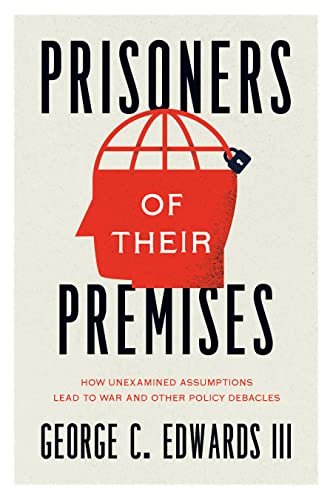
Prisoners of Their Premises: How Unexamined Assumptions Lead to War and Other Policy Debacles
by George C. Edwards III (Author)
Why do accomplished and stable leaders frequently make calamitous decisions with devastating consequences for their countries—and other nations? We debate debacles such as the American involvement in Vietnam, seeking to understand why leaders pursued disastrous policies. In Prisoners of Their Premises, George C. Edwards III argues that the failure of leaders to examine their premises—the assumptions they make about the world and situation they are dealing with—causes them to ignore real problems or pursue policies that, in costly ways, deal with problems that are different than they think or simply don’t exist. Edwards looks at the role of premises in identifying (or ignoring) a problem in a series of case studies that range from strategic decisions in World War I and the Korean War to the wars in Vietnam and Iraq. Too often, unexamined premises color initial decisions to pursue a policy and shape the strategies leaders employ to achieve their goals, with grave consequences for their countries, organizations, and potentially the world. Timely and importantly, Prisoners of Their Premises demonstrates the real costs leaders incur by failing to question their assumptions.
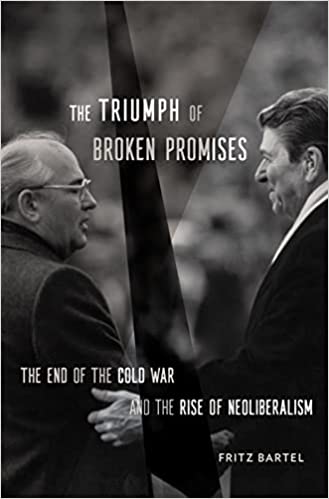
The Triumph of Broken Promises: The End of the Cold War and the Rise of Neoliberalism
by Fritz Bartel (Author)
Why did the Cold War come to a peaceful end? And why did neoliberal economics sweep across the world in the late twentieth century? In this pathbreaking study, Fritz Bartel argues that the answer to these questions is one and the same. The Cold War began as a competition between capitalist and communist governments to expand their social contracts as they raced to deliver their people a better life. But the economic shocks of the 1970s made promises of better living untenable on both sides of the Iron Curtain. Energy and financial markets placed immense pressure on governments to discipline their social contracts. Rather than make promises, political leaders were forced to break them.
In a sweeping narrative, The Triumph of Broken Promises tells the story of how the pressure to break promises spurred the end of the Cold War. In the West, neoliberalism provided Western leaders like Ronald Reagan and Margaret Thatcher with the political and ideological tools to shut down industries, impose austerity, and favor the interests of capital over labor. But in Eastern Europe, revolutionaries like Lech Walesa in Poland resisted any attempt at imposing market discipline. Mikhail Gorbachev tried in vain to reform the Soviet system, but the necessary changes ultimately presented too great a challenge.
Faced with imposing economic discipline antithetical to communist ideals, Soviet-style governments found their legitimacy irreparably damaged. But in the West, politicians could promote austerity as an antidote to the excesses of ideological opponents, setting the stage for the rise of the neoliberal global economy.

